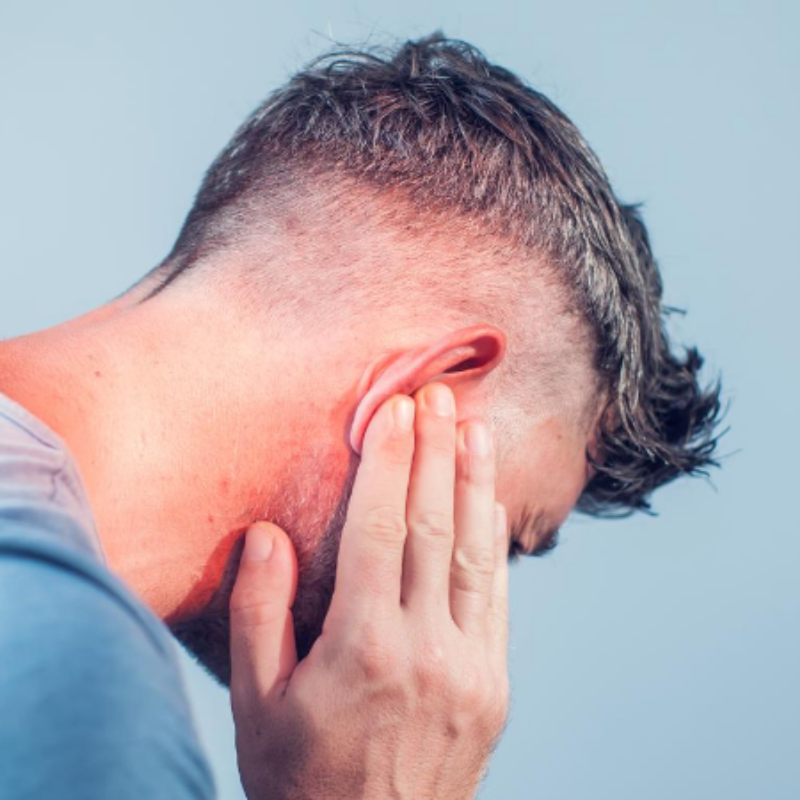Swimmer’s Ear (Otitis Externa)

Pools have opened up here in Murfreesboro, and the lakes are overflowing with people going outside here in Middle Tennessee. However, frequent water activities and humidity can lead to an increase in water related ear infections.
The type of ear infection that can present when habitually around water or humidity is called otitis externa, or more commonly, swimmer’sear. Otitis externa simply refers to the inflammation of the outer ear, which can include the ear canal or auricle. Children ages 5-15 have the highest likelihood of developing swimmer’s ear, but persons of any age can be affected. Signs and symptoms include pain,drainage, itching of the ear, and decrease in hearing. The ear has several inherent defense mechanisms to protect itself, including hair follicles and cerumen (ear wax). Cerumen is important because it is an acidic medium that helps inhibit the growth of both bacteria and fungus. Water or excess moisture leads to cerumen breakdown which changes the flora and acidity of the ear canal, making it more susceptible to infection. Frequent water exposure is the most well-known risk factor for swimmer’s ear infections, but anything that causes cerumen destruction or trauma to the ear canal can also stimulate an infection. Therefore, Q-tip use is discouraged!
The most common causes of a swimmer’s ear infection are bacterial, fungal or dermatologic (i.e. related to skin conditions). Each of these types of infections is treated differently, and therefore requires a thorough ear, or otoscopic, examination for differentiation. The otoscopic examination is also important to assess for other possible diagnoses like otitis media and tympanic membrane perforation. Some mild forms of otitis externa with only mild drainage and swelling may only require antibiotic ear drops for treatment. Other more severe infections that severe pain, edema, and hearing loss may need more extensive cleaning, a wick to relieve an occlusion, an ear culture, or even a hearing test.
All our providers at Murfreesboro Medical Clinic ENT are specially trained to diagnose and treat these ear infections, so if you need our services feel free to call and arrange an appointment.
Recommended at home treatment and prevention for swimmer’sear:
- Dry ears out with hairdryer after swimming
- Consider fitted ear plugs for swimming (can be fitted for you at your Murfreesboro Medical Clinic ENT appointment)
- Homemade ear drops with half rubbing alcohol, half vinegar can help to evaporate water in the ears and prevent a swimmer’s ear infection
- If a perforation (hole in the eardrum) or ear tubes are in place, consult with your Murfreesboro Medical Clinic ENT doctor before using ear drops
- Do not use q tip or other foreign bodies to clean ear wax

Chad Richardson, FNP-C - MMC Comprehensive ENT Specialists
Chad Richardson moved to Rutherford County to attend college at Middle Tennessee State University in 1999. He currently lives in Murfreesboro with his family, including his daughter and son. His interests include hiking, baseball, hunting, fishing, and golf.
Chad studied nursing, and received his bachelor's degree from Middle Tennessee State University in 2004. While completing his bachelors he began his MMC journey by working in the Pediatric department. After graduation he then left the clinic to work in Vanderbilt Pediatric Emergency Room. After 3 years away from the clinic he then returned to work at MMC in 2007 and worked both in the PACU and OR in the SurgiCenter. While working in the SurgiCenter, he then completed his master's degree studies from Tennessee State University, and became a board certified nurse practitioner in 2018.






